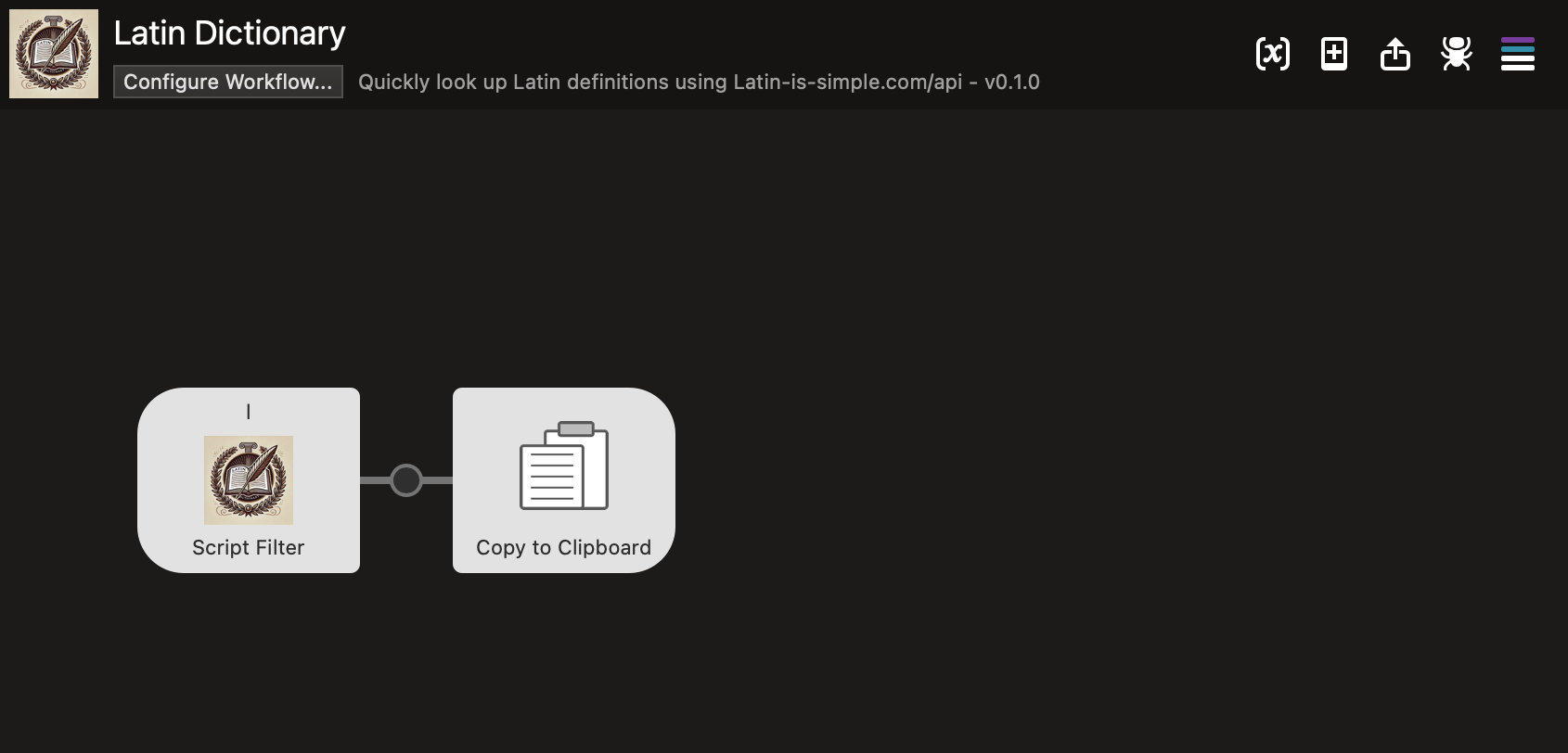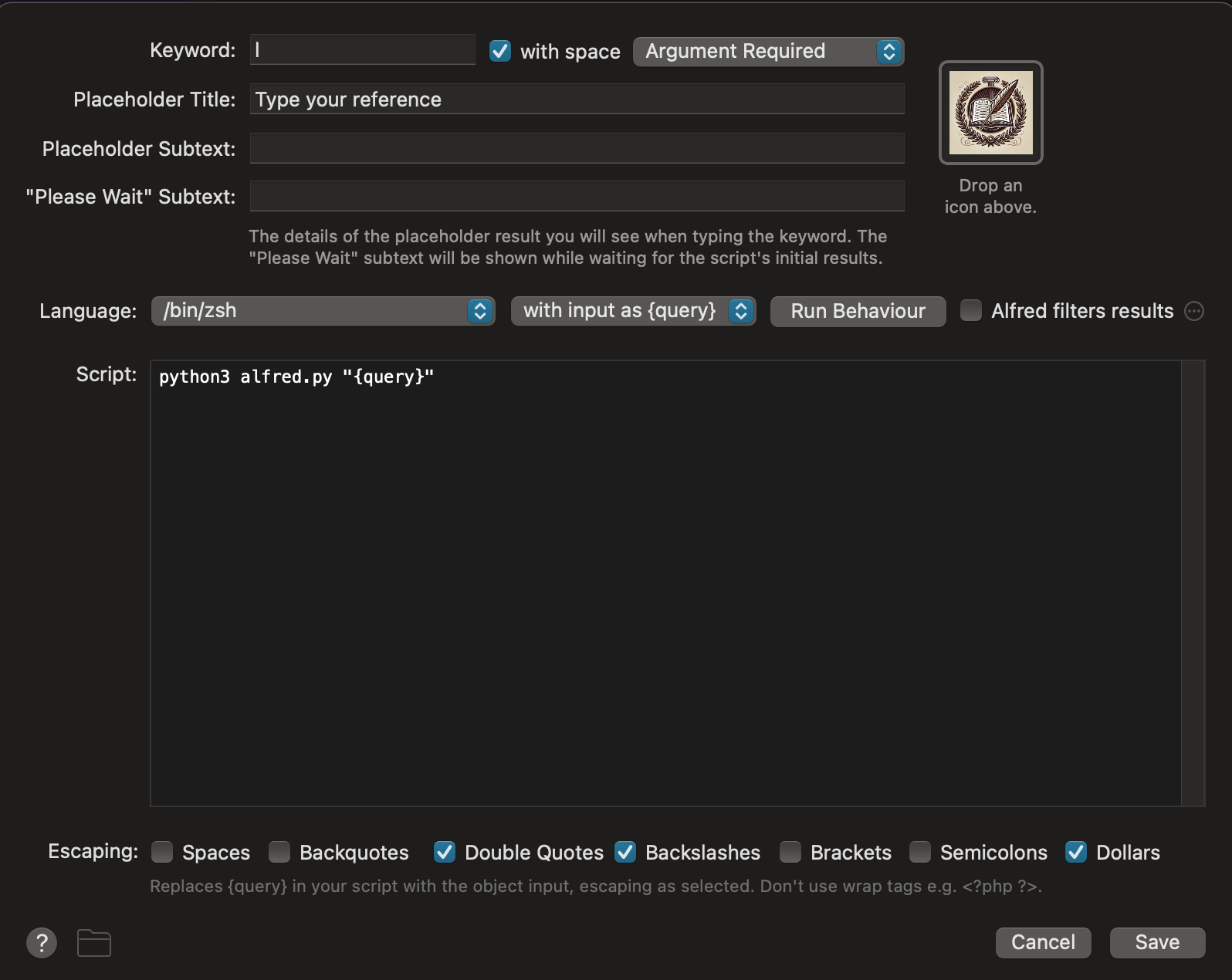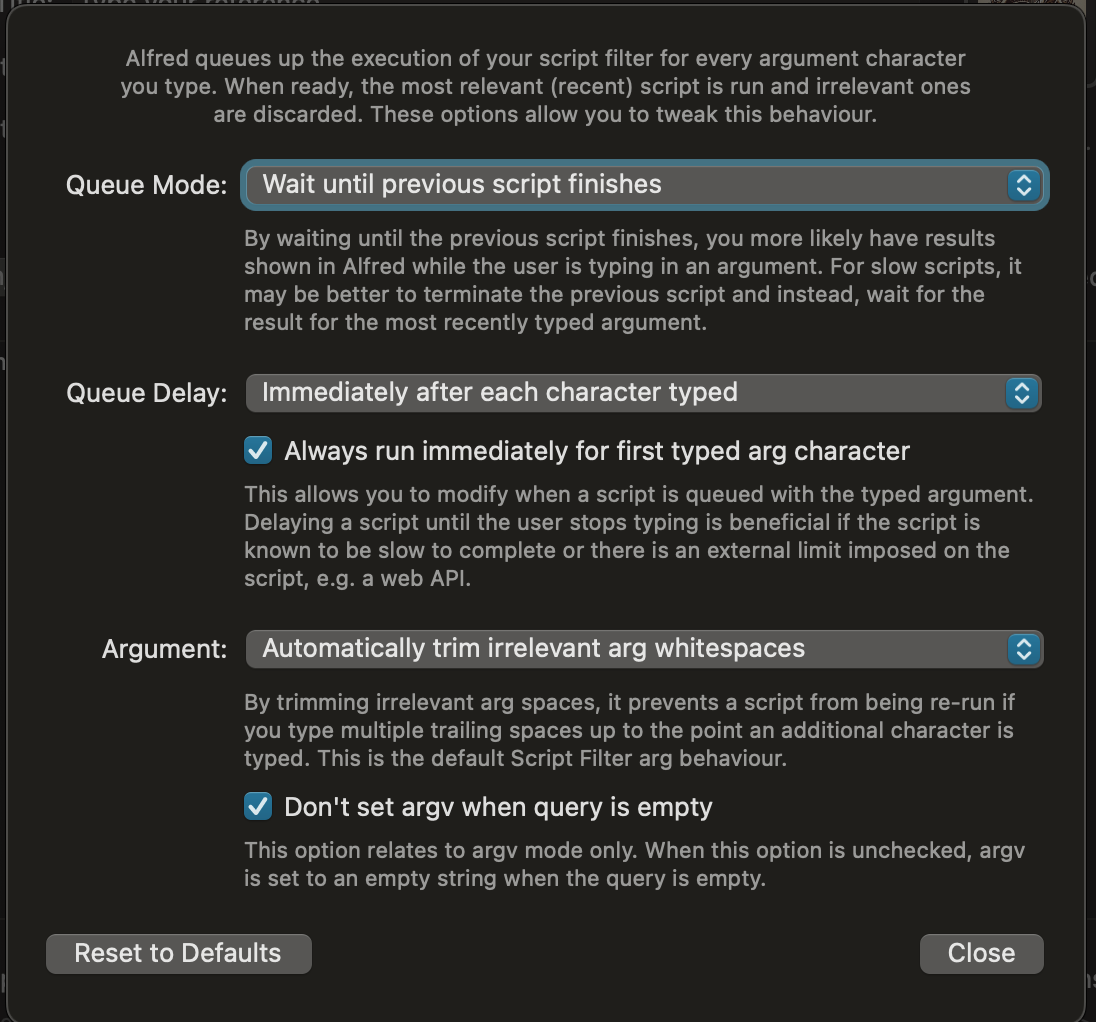I use Alfred all the time. It is my app launcher, my file finder, and my script swiss army knife.
I am taking up Latin again. My grammar is still decent by my vocabulary is pretty rough. I frequently need to look up a word. Using an online diction is onerous. So, chatgpt and I wrote a script to use Alfred and the Latin Is Simple API to make this much faster.
Command + <space>, followed by the letter ’l’, and I can start typing a Latin word and the dictionary populates before my eyes.

The Alfred Workflow is all you need. But if you are interested in how it is made, continue reading:
See the Alfred Docs on creating workflows.
This is a simple workflow that uses a script filter and copy to clipboard block.

Here is the script:
import sys
import urllib.request
import urllib.parse
import json
BASE_URL = "https://www.latin-is-simple.com/api/vocabulary/search/"
def search_latin_word(query):
"""Search for a Latin word using the Latin-is-Simple API."""
params = {
'query': query,
'forms_only': 'false',
'format': 'json'
}
url = BASE_URL + '?' + urllib.parse.urlencode(params)
headers = {
'accept': 'application/json',
'User-Agent': 'Mozilla/5.0'
}
req = urllib.request.Request(url, headers=headers)
with urllib.request.urlopen(req) as response:
data = response.read().decode('utf-8')
results = json.loads(data)
return results
def main():
# Get the query from Alfred's {query} variable
if len(sys.argv) < 2:
print(json.dumps({'items': []}))
sys.exit(0)
query = ' '.join(sys.argv[1:])
try:
results = search_latin_word(query)
if not results:
output = {'items': [{
'title': 'No results found.',
'valid': False,
'icon': {'path': 'icons/error.png'}
}]}
else:
items = []
for entry in results:
translations = entry.get('translations_unstructured', {})
en_translation = translations.get('en', 'No English translation available.')
item = {
'title': entry['full_name'],
'subtitle': en_translation,
'arg': en_translation,
'mods': {
'cmd': {
'arg': entry['url'],
'subtitle': 'Copy URL to Clipboard'
}
},
'icon': {'path': 'icons/latin.png'}
}
items.append(item)
output = {'items': items}
print(json.dumps(output))
except Exception as e:
output = {'items': [{
'title': 'Error occurred.',
'subtitle': str(e),
'valid': False,
'icon': {'path': 'icons/error.png'}
}]}
print(json.dumps(output))
if __name__ == '__main__':
main()
The only trick with the API was adding a User-agent in the header to prevent a 403 error. The API page has info about API auth that you can get when creating an account. I created an account and could not find it. I messaged the site and did not recieve a response, so this works for now.
Here is how the script is setup in Alfred:

To get the live search, set the Queue Delay to “Immediately after each character typed”.

That’s it. You have a fast Latin Dictionary at your fingertips.